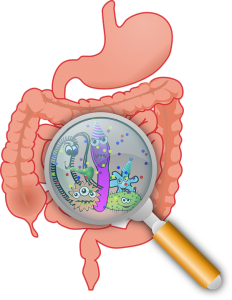 With new year’s resolutions perhaps on their second wind, and summer approaching, you may be considering a new diet. Maybe this is a reboot of the diet you started at the beginning of January. Or maybe you saw a new fad diet online that promises quick results just in time for bathing suit season. But before you fall into this trap, you should know that current research shows that yo-yo dieting could hurt your heart.
With new year’s resolutions perhaps on their second wind, and summer approaching, you may be considering a new diet. Maybe this is a reboot of the diet you started at the beginning of January. Or maybe you saw a new fad diet online that promises quick results just in time for bathing suit season. But before you fall into this trap, you should know that current research shows that yo-yo dieting could hurt your heart.
What is yo-yo-dieting?
Yo-yo dieting is a pattern of losing weight and gaining it back repeatedly. There is inconclusive evidence to show that yo-yo dieting impacts future weight gain and metabolic health. In fact, a 2017 study shows that weight loss efforts, no matter how many times they are repeated, should continue to be encouraged in those who are overweight or obese.
However, this does not mean though that you should strive to be a yo-yo dieter. This is because recent research shows that yo-yo dieting could impact heart health. A 2019 study looked at 500 women with an average age of 37 years old.
Study results show that women who lost 10 pounds and gained that weight back within a year were more likely to have heart health problems. Also, the more they yo-yo dieted, the more at risk they were for heart disease. Researchers suggest that this may happen because when a person loses weight, they lose some lean muscle mass. And when they gain weight back, they often gain fat in place of this muscle. Over time, this may cause a build-up of fat in the abdomen, which can increase heart health risk.
About a heart healthy diet
Instead of yo-yo dieting, you can protect your heart by following a heart healthy diet. This means lots of fiber-rich and antioxidant-rich fruits, vegetables, and whole grains like oats, quinoa, nuts, and seeds. In addition, this means consuming lean protein at meals and snacks, eating plenty of healthy plant-based fats like avocado and olive oil, as well as limiting alcohol intake. Focusing more on consuming a balanced diet that is nutrient-dense is better for your heart than countless cycles of fad diets and weight gain.
Other ways to help your heart
Besides a heart healthy diet, read below for other things you can do to help your heart.
- Move more: Exercise is not only good for helping you to manage weight, but is also great for your heart. You should try to move at least 30 minutes a day for most days of the week for the most benefit. This movement should be of moderate intensity. This means that when you move, your breathing quickens, but you’re not out of breath. This includes brisk walking, gardening, or light aerobics for example.
- Stress less and quit smoking: Stress and smoking are two lifestyle behaviors that can contribute to increased blood pressure. This is because they can constrict blood vessels and make it harder for blood to flow in the body. Therefore, if you smoke, use resources such as those on Smokefree.gov to try to quit. And if you’re stressed, try to talk to someone like a friend, loved one, or counselor. You can also use relaxation breathing, yoga, or meditation to help with stress.
- Visit your doctor often: It’s important to visit your doctor at least once a year, or more if you have a chronic health condition. This will help you keep track of your numbers like blood pressure, triglycerides, cholesterol, and blood glucose levels. In turn, this can help you catch any heart health problems in the early stages and treat them before they cause serious issues.
- Add a heart healthy supplement: If you are already following a low stress, smoke-free, heart healthy eating and lifestyle plan, then that’s great. However, if you want to further enhance the benefits of such a lifestyle, you can try a heart healthy supplement like Alestra by Vita Sciences. Alestra contains ingredients like niacin, plant sterols, and garlic to maintain healthy cholesterol levels and promote heart health.
-written by Staci Gulbin, MS, MEd, RD of LighttrackNutrition.com
References:
American Heart Association (August 15, 2015) “The American Heart Association’s Diet and Lifestyle Recommendations.”
Dictionary.com (accessed March 11, 2019) “Yo-yo dieting.”
Gordon, S. (March 7, 2019) “Yo-Yo Dieting Can Take a Toll on Your Heart.” HealthDay
Mackie, G.M., Samocha-Bonet, D., and Tam, C.S. (March-April 2017) “Does weight cycling promote obesity and metabolic risk factors? Obesity Research and Clinical Practice, 11(2): 131-139.
Mayo Clinic (June 9, 2018) “Is yo-yo dieting making you fat.” Mayo Clinic online
Mayo Clinic (June 12, 2018) “Exercise intensity: how to measure it.” Mayo Clinic online
University of Michigan: Michigan Medicine (June 28, 2018) “Stress Management: Breathing Exercises for Relaxation.” https://www.uofmhealth.org/health-library/uz2255
 If you’ve ever tried to eat healthy, which I’m sure most of us have, then you may have been told to eat more vegetables. This is a tried and true statement that is vital to every healthy lifestyle. This is because plant-based foods like fruits and vegetables are full of gut-healthy fiber and antioxidants. In turn, this helps to lower your risk of chronic diseases like heart disease and diabetes. That is why it may not be surprising that a recent study shows that a plant-based diet may help diabetes treatment.
If you’ve ever tried to eat healthy, which I’m sure most of us have, then you may have been told to eat more vegetables. This is a tried and true statement that is vital to every healthy lifestyle. This is because plant-based foods like fruits and vegetables are full of gut-healthy fiber and antioxidants. In turn, this helps to lower your risk of chronic diseases like heart disease and diabetes. That is why it may not be surprising that a recent study shows that a plant-based diet may help diabetes treatment. Although some fats are healthy in a balanced diet, too much of anything can be a harmful thing. For some people, like those with irritable bowel syndrome, too much fat in the diet may cause digestive distress. And for those with conditions like pancreatitis, fat is not digested well, so must be limited in the diet. Recent research shows that anyone, no matter their health status, may be at risk for gut health issues on a high fat diet.
Although some fats are healthy in a balanced diet, too much of anything can be a harmful thing. For some people, like those with irritable bowel syndrome, too much fat in the diet may cause digestive distress. And for those with conditions like pancreatitis, fat is not digested well, so must be limited in the diet. Recent research shows that anyone, no matter their health status, may be at risk for gut health issues on a high fat diet. If you read just about any healthy eating plan, you may see the phrase “eat less processed foods.” This can seem like a difficult task since many foods in the grocery store aisles seem to contain long lists of ingredients. Therefore, it can be hard to figure out what to eat for optimal health while still staying within your food budget. However, recent research shows that eating too many ultraprocessed foods can increase risk of death. Let’s learn a bit about these foods and how you can clean up your diet.
If you read just about any healthy eating plan, you may see the phrase “eat less processed foods.” This can seem like a difficult task since many foods in the grocery store aisles seem to contain long lists of ingredients. Therefore, it can be hard to figure out what to eat for optimal health while still staying within your food budget. However, recent research shows that eating too many ultraprocessed foods can increase risk of death. Let’s learn a bit about these foods and how you can clean up your diet. Now you may be saying to yourself, “Another article telling me to eat vegetables.” :sigh: However, this is not just another one of “those” articles. There are more reasons to eat your veggies than you may think. Besides providing digestive-friendly fiber and antioxidants, a recent study has shown that eating a more plant-based diet can actually lower your heart and diabetes health numbers.
Now you may be saying to yourself, “Another article telling me to eat vegetables.” :sigh: However, this is not just another one of “those” articles. There are more reasons to eat your veggies than you may think. Besides providing digestive-friendly fiber and antioxidants, a recent study has shown that eating a more plant-based diet can actually lower your heart and diabetes health numbers. With the summer months approaching and weather warming, weight loss may be on your mind. With every click of the remote, there are commercials advertising weight loss plans, exercise equipment, and fat burning supplements claiming to help you manage your weight. However, a recent study has shown that regular eating versus dieting may be the answer to long term weight loss and management.
With the summer months approaching and weather warming, weight loss may be on your mind. With every click of the remote, there are commercials advertising weight loss plans, exercise equipment, and fat burning supplements claiming to help you manage your weight. However, a recent study has shown that regular eating versus dieting may be the answer to long term weight loss and management. When you have diabetes and are overweight, your doctor may say that a small amount of weight loss could help control your condition. However, if you have to take insulin to control your blood glucose levels, weight loss can be very difficult. Therefore, it is encouraging to report that a new diabetes medicine may help those with diabetes who are obese to lose weight.
When you have diabetes and are overweight, your doctor may say that a small amount of weight loss could help control your condition. However, if you have to take insulin to control your blood glucose levels, weight loss can be very difficult. Therefore, it is encouraging to report that a new diabetes medicine may help those with diabetes who are obese to lose weight.
 Are you one of the 30-percent of the American adults that skips breakfast? Time and time again you may have heard that breakfast is the most important meal of the day. A recent study has found that breakfast may improve heart health by reducing risk of heart disease.
Are you one of the 30-percent of the American adults that skips breakfast? Time and time again you may have heard that breakfast is the most important meal of the day. A recent study has found that breakfast may improve heart health by reducing risk of heart disease.